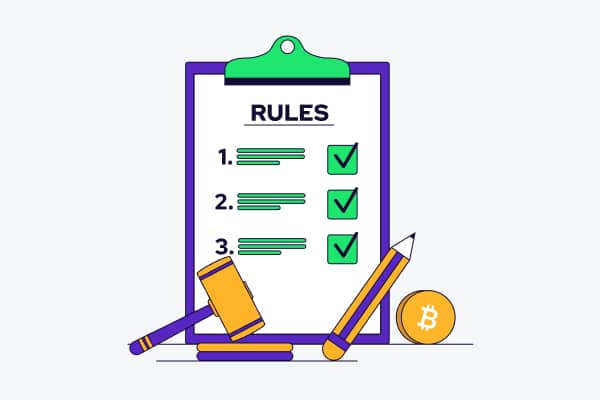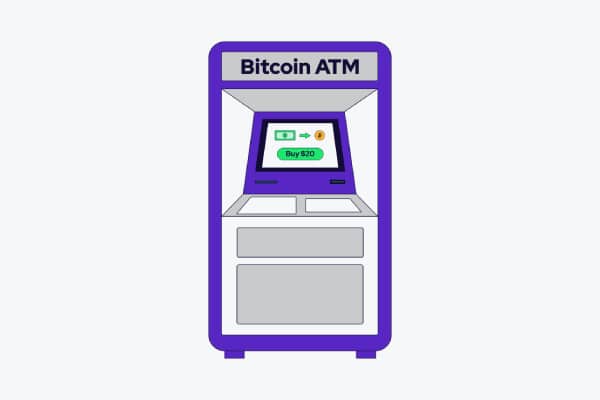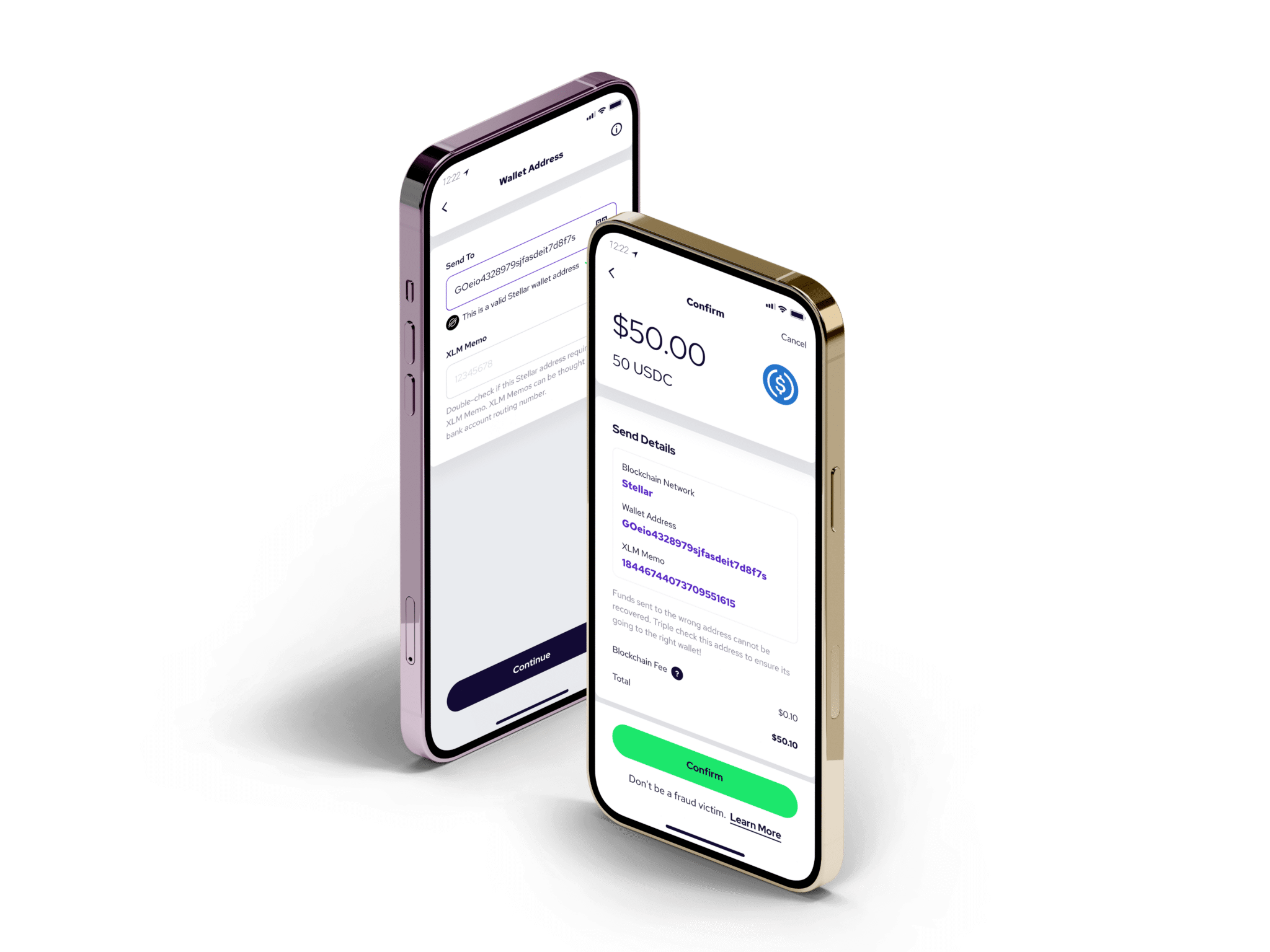In the past few years, crypto has entered the spotlight, garnering the attention of state and federal regulators. You may wonder if and how crypto is regulated in the U.S. The environment is constantly evolving, and below is a quick guide to the crypto regulatory landscape of the U.S.

Who oversees crypto regulations in the U.S.?
Although crypto is intended to be removed from government or political influence, companies in the industry still need to comply with rules set by federal regulators. These regulators include:
- The Securities and Exchange Commission (SEC)
- The Financial Crimes Enforcement Network (FinCEN)
- The Federal Reserve Board
- The Commodity Futures Trading Commission (CFTC).
The SEC, viewed as the most powerful regulator, often views many cryptos as securities. FinCEN, a bureau of the U.S. Department of the treasury, regards bitcoin as a currency while the CFTC considers it a commodity. Earlier this year, President Biden issued an executive order calling for federal agencies to implement strategies for regulating digital assets.
AML and KYC
Anti-Money Laundering (AML) and Know Your Customer (KYC) are protocols financial institutions must follow to combat financial crime. AML, governed by the Bank Secrecy Act (BSA), are steps financial institutions must take to prevent money from illicit sources from being deposited or transferred into the institution (commonly known as money laundering). Examples of AML activities include preventing criminals from holding bank accounts and monitoring transactions for suspicious activities.
KYC is screening customers to verify they are, in fact, who they are claiming to be. It also ensures they do not pose a risk to the business itself. KYC falls under the umbrella of AML; however, KYC also prevents fraud. An example of a company following KYC protocols is the requirement of a valid state ID or driver’s license and a selfie to prove identity and use an app-based or web-based financial service.
Since cryptocurrency exchanges involve purchasing, selling or transferring digital assets, they must also follow AML and KYC procedures to verify identity and mitigate fraud and money laundering. This also protects them from scrutiny by regulators and lessens the risk to their businesses.
How can crypto be private and anonymous when it’s regulated?
One of the early tenets of crypto is that it was privacy-focused and anonymous. However, in the U.S., as the industry proliferated and regulators took notice, companies had to comply with government regulations, such as following AML and KYC protocols with customers and their transactions, to remain in business.
Cryptos like bitcoin are still controlled by their communities in terms of value and supply. However, businesses offering the sale or purchase of bitcoin are beholden to the government to follow regulations designed by regulators to create transparency and accountability, in addition to combating financial crime.
Do crypto exchanges need to be licensed?
Cryptocurrency platforms such as exchanges and bitcoin ATM operators are considered money services businesses (MSBs) by FinCEN since they exchange, create, obtain, distribute and/or administer digital currencies. Therefore, in the U.S., they must register with FinCEN and apply for and be granted a money transmitter license (MTL) in each state of operation.
As part of this process, crypto companies must create and adhere to AML programs. In addition, all U.S. states, except Montana, require MSBs to hold MTLs. Failure to register with FinCEN and obtain MTLs in each state can result in excessive fines and the shuttering of business operations.
What are the new crypto tax regulations in 2023?
When filing taxes, you may have noticed in recent years a question about “virtual currencies.” However, this is not new, as it has been mandatory for people who hold crypto to report income and capital gains made from digital currencies.
The Infrastructure Act signed by President Biden in November 2021 included provisions for crypto taxation. These won’t go into effect until 2023 and will only apply to the 2023 tax year. The IRS will provide final regulations to ensure the compliance of crypto organizations.
- Digital assets as specified securities: The categorization of digital assets, like bitcoin, are to be classified as “specified securities” that are subject to reporting on sales. This means crypto exchanges must report customer crypto activities.
- Crypto exchanges/platforms as brokers: Any crypto exchange or platform is now regarded as a broker and must adhere to the reporting requirements, which include advising of a customer’s proceeds from the sales of, converting or spending of crypto.
- Reporting of cost basis: The law also requires crypto brokers to report the customer cost basis to the IRS. This is the purchase price of the crypto plus any transaction fees.
- Customers must submit a W-9: Customers of crypto brokers will need to complete and sign form W-9 so crypto exchanges and platforms can report crypto sales per taxpayer on their platform to the IRS.
Does Coinme comply with federal and state regulations?
From the company’s start in 2014, Coinme has worked closely with financial regulators to ensure the business complies with state and federal regulations. Coinme complies with financial regulations within the 49 states we operate. It’s why brand-name grocery stores, retail check cashing locations and pharmacies comprise Coinme’s network of over 21,000 locations offering the instant sale and/or purchase of bitcoin with cash. The company prides itself on its dedication to regulatory rigor and the protection and safety of its customers.
To keep up with the latest news on Coinme and our commitment to customer trust, please subscribe to our newsletter below:


